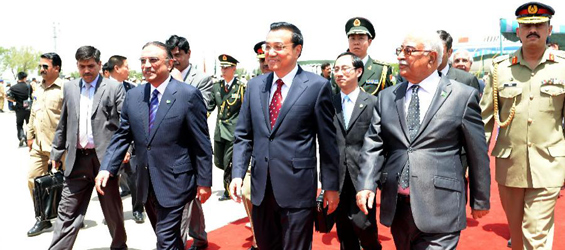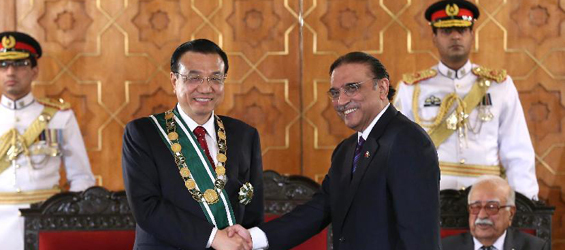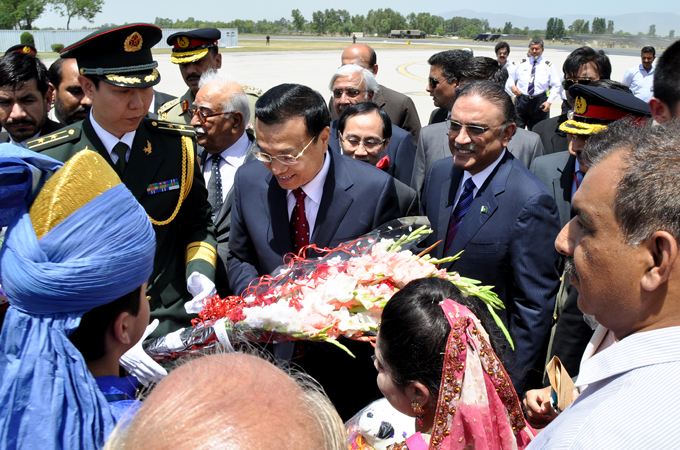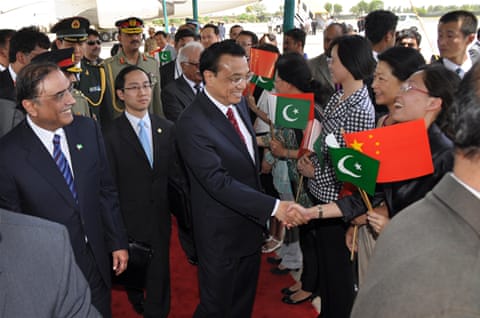
By THOMAS ERDBRINK
The decision on Tuesday to bar the presidential candidacy of Ali Akbar Hashemi Rafsanjani, a founding father of the revolution and a former president, shocked Iranians, particularly among the 70 percent of the population that is under 35 and grew up when he served in many leading positions.
“They say a revolution eats its children,” said Mehdi, 27, a teacher. “But in the case of Rafsanjani the revolution has eaten its father.”
The exclusion of Mr. Rafsanjani and another thorn in the conservatives’ side, Esfandiar Rahim Mashaei, could foreshadow even greater repercussions, analysts and commentators said.
Since its founding in 1979, the Islamic republic has been characterized by opposing power centers competing constantly and often publicly, a back-and-forth that gave ordinary citizens and private business owners the ability to navigate between the groups.
Barring further surprises, the winner of the June election will now be drawn from a slate of conservative candidates in Iran’s ruling camp, a loose alliance of Shiite Muslim clerics and Revolutionary Guard commanders. That would put the last major state institution under their control — the first time since the 1979 revolution that all state institutions were under the firm control of one faction.
Analysts have long speculated — and some conservative clerics have confirmed — that the ruling faction is determined to abolish the office of president, which has served as a locus of opposition under the populist incumbent, Mahmoud Ahmadinejad, and before him the reformist Mohammad Khatami, who pushed for more personal freedoms. While by no means certain, it is now a greater possibility.
At the very least, the anti-climactic election campaign seems likely to further reinforce the alienation of the urban classes, which make up a large portion of the electorate and mostly gave up on politics after the suppression of the 2009 uprising following Mr. Ahmadinejad’s re-election, widely dismissed as fraudulent. A major boycott of the vote could further undercut the government’s already diminished legitimacy.
The remaining candidates reflect the different shades of gray that now make up Iran’s establishment, a coalition of conservative clerics and Revolutionary Guard commanders known as the traditionalists. Of the eight who were selected — out of the 700 hopefuls who signed up — only one, Hassan Rowhani, a former nuclear negotiator, has even slightly different stances from the traditionalists.
Three of the qualified candidates have direct links to the country’s supreme leader, Ayatollah Ali Khamenei: Gholam Ali Haddad Adel, a close adviser and a relative by marriage; Ali Akbar Velayati, his foreign policy adviser; and Iran’s top nuclear negotiator, Saeed Jalili.
A fourth, Tehran’s mayor, Mohammad Bagher Qalibaf, has long presented himself as a technocrat but last week boasted publicly of having beaten protesting students as a police commander.
All of them say they are ready to fix the economy by using a “revolutionary mind-set” and to solve the nuclear dispute with the Western powers by convincing them that Iran’s position is just.
If history is borne out, one of the candidates, possibly Mr. Rowhani, who is close to Mr. Rafsanjani, will try to tap into votes that would have gone to the two disqualified candidates. Indeed, Mr. Rowhani has already said that if elected he would start direct talks with the United States, a popular theme among dissatisfied urban voters.
For many, though, the elections are shaping up as a shoo-in for someone close to Ayatollah Khamenei.
“Why are they even bothering to organize these elections?” asked a retired army officer, who like others interviewed for this article spoke anonymously out of fear of reprisals. “It seems everything has already been decided.”
It remains possible that one or both of the disqualified candidates will be reinstated. While they are not allowed to appeal, Abbas-Ali Kadkhodaei, the secretary of the Guardian Council, a panel loyal to Ayatollah Khamenei that made the decision, told state news media on Tuesday that Ayatollah Khamenei could reinstate them by decree. He did that in the 2005 elections with a reformist candidate, Mostafa Moin, who came in fifth.
There was no immediate reaction from Mr. Rafsanjani. One of his daughters, Faezeh Hashemi, who was released from prison in March after spending six months there for ”anti-regime propaganda,” did not return calls seeking comment.
Mr. Mashaei said he would fight the decision.
“I consider my disqualification as unjust, and will follow it up through the supreme leader,” he told the Fars news agency.
Just a week ago, a pro-Rafsanjani columnist, Sadegh Zibakalam, predicted that the thousands of government managers, university professors and others in the middle class who once supported the former reformist president, Mohammad Khatami, would rapidly fall in line behind Mr. Rafsanjani. “The feeling of happiness, fervor and enthusiasm that Rafsanjani’s registration created will in the coming days gradually turn into a serious determination throughout the country to turn up at the ballot boxes on 14 June.”
Instead, Mr. Rafsanjani’s disqualification appeared to mark the end of their aspiration to bring change through the ballot box rather than through street protests.
For Mr. Rafsanjani himself, another shot at the presidency at the age of 78 seems not only physically, but politically, impossible. Tuesday’s disqualification also seemed like an official repudiation of his ideas of a liberal economy and more freedoms.
The question remains of what President Ahmadinejad will do now that his protégé, Mr. Mashaei, has been sidelined. His legacy has been tainted by his close relationship with Mr. Mashaei, whom traditionalists call a “deviant” for what they view as his liberal ideas on Islam. Many in his faction have charges of corruption being drawn against them, and the Revolutionary Guards have already hinted that they are ready to do whatever it takes, including the arrest of associates of Mr. Ahmadinejad, if they feel the revolution is under threat.


 China and Pakistan will always be good partners and brothers that are reliable and sincere to each other, visiting Premier Li Keqiang said Wednesday.
China and Pakistan will always be good partners and brothers that are reliable and sincere to each other, visiting Premier Li Keqiang said Wednesday.
 The two neighboring countries "are all-weather friends," Li said during a meeting with Pakistani President Asif Ali Zardari shortly after he landed here before noon.
The two neighboring countries "are all-weather friends," Li said during a meeting with Pakistani President Asif Ali Zardari shortly after he landed here before noon.
 The bilateral friendship boasts a solid foundation and enjoys great prospects, said Li, noting that he fully felt the Pakistani people's deep friendship toward the Chinese people from the warm and grand welcome he received upon his arrival.
Good-neighborliness between China and Pakistan is a blessing not only for the two countries but also for Asia and the world at large, and the bilateral friendship is worth cherishing and carrying on from generation to generation, he added.
The bilateral friendship boasts a solid foundation and enjoys great prospects, said Li, noting that he fully felt the Pakistani people's deep friendship toward the Chinese people from the warm and grand welcome he received upon his arrival.
Good-neighborliness between China and Pakistan is a blessing not only for the two countries but also for Asia and the world at large, and the bilateral friendship is worth cherishing and carrying on from generation to generation, he added.
 Li said the inclusion of Pakistan in his first overseas trip as premier is aimed at working with Pakistan to open a new chapter in their bilateral ties, chart a new course for practical cooperation and thus lift their traditional friendship to a new height.
China, he added, is committed to advancing the bilateral strategic cooperative partnership, and willing to be reliable partners and sincere brothers with Pakistan forever.
Noting that Zardari has paid nine visits to China during his presidency, Li said China highly appreciates his great contribution to the development of bilateral ties.
Zardari, for his part, said the itinerary of Li's first foreign trip as premier testifies to the great importance the Chinese government and people as well as Li himself attach to the bilateral relationship.
Maintaining the friendship with China is a consensus among all Pakistani political parties, he said, adding that his country is willing to work with China to further deepen their strategic cooperative partnership.
Interim Prime Minister Mir Hazar Khan Khoso and Nawaz Sharif, who is expected to become prime minister for the third time, attended the meeting.
After the meeting, Zardari held a grand ceremony to confer on the Chinese premier the Nishan-e-Pakistan, the highest award given by the Pakistani government.
The award, Li said, not only represents a personal honor, but also embodies the special friendly feelings the Pakistani people have toward the Chinese people.
The Chinese premier also attended a grand welcoming luncheon hosted by Zardari, which gathered more than 400 people from Pakistan's government, parliament, political parties and armed forces.
Li flew in from India. Six fighter jets of the Pakistani air force escorted Li's plane after it entered the country's airspace.
Li's four-nation trip will also take him to Switzerland and Germany.
Li said the inclusion of Pakistan in his first overseas trip as premier is aimed at working with Pakistan to open a new chapter in their bilateral ties, chart a new course for practical cooperation and thus lift their traditional friendship to a new height.
China, he added, is committed to advancing the bilateral strategic cooperative partnership, and willing to be reliable partners and sincere brothers with Pakistan forever.
Noting that Zardari has paid nine visits to China during his presidency, Li said China highly appreciates his great contribution to the development of bilateral ties.
Zardari, for his part, said the itinerary of Li's first foreign trip as premier testifies to the great importance the Chinese government and people as well as Li himself attach to the bilateral relationship.
Maintaining the friendship with China is a consensus among all Pakistani political parties, he said, adding that his country is willing to work with China to further deepen their strategic cooperative partnership.
Interim Prime Minister Mir Hazar Khan Khoso and Nawaz Sharif, who is expected to become prime minister for the third time, attended the meeting.
After the meeting, Zardari held a grand ceremony to confer on the Chinese premier the Nishan-e-Pakistan, the highest award given by the Pakistani government.
The award, Li said, not only represents a personal honor, but also embodies the special friendly feelings the Pakistani people have toward the Chinese people.
The Chinese premier also attended a grand welcoming luncheon hosted by Zardari, which gathered more than 400 people from Pakistan's government, parliament, political parties and armed forces.
Li flew in from India. Six fighter jets of the Pakistani air force escorted Li's plane after it entered the country's airspace.
Li's four-nation trip will also take him to Switzerland and Germany.






